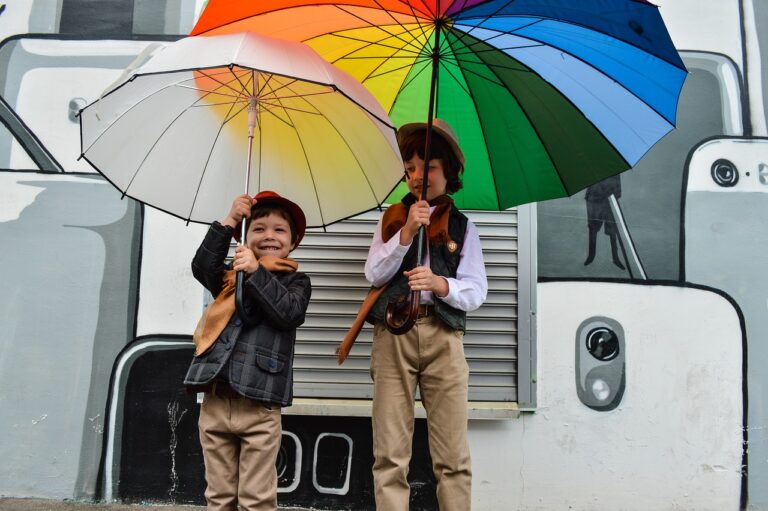Fashion and Futurism: Imagining Trends Beyond the Present
In today’s fast-paced world, the fashion industry is constantly evolving, driven by the desire for innovation and creativity. As we look towards the future, it’s essential to explore how fashion and futurism intersect, shaping the trends of tomorrow. From cutting-edge technologies to sustainability practices, the future of fashion holds endless possibilities. In this article, we will delve into the world of fashion and futurism, exploring how these two realms are set to revolutionize the way we dress and express ourselves.
The Rise of Sustainable Fashion
One of the most significant trends shaping the future of fashion is the rise of sustainable practices. With consumers becoming increasingly aware of the environmental impact of the fashion industry, brands are turning towards eco-friendly materials and production methods. From using recycled fabrics to implementing ethical sourcing practices, sustainable fashion is here to stay. As we look towards the future, we can expect to see an even greater emphasis on sustainability in the fashion industry.
Technological Advancements in Fashion
Technology is playing a significant role in shaping the future of fashion. From 3D printing to virtual reality fitting rooms, designers are incorporating cutting-edge technologies into their creations. Wearable technology, such as smart fabrics and accessories, is becoming increasingly popular, blurring the lines between fashion and functionality. As technology continues to advance, we can expect to see even more innovative designs and collaborations between fashion and tech industries.
Diversity and Inclusivity in Fashion
The fashion industry is becoming more inclusive and diverse, embracing different body types, races, and gender identities. With the rise of body positivity movements and the increasing demand for inclusive clothing, brands are starting to cater to a wider range of consumers. In the future, we can expect to see more diverse representations in fashion campaigns and runways, celebrating individuality and authenticity.
Artificial Intelligence in Fashion
Artificial intelligence (AI) is revolutionizing the way we shop for clothes and accessories. From personalized recommendations to virtual stylists, AI is enhancing the shopping experience for consumers. Brands are using AI to analyze data and predict trends, allowing them to deliver more targeted and relevant products to their customers. In the future, AI will continue to play a crucial role in shaping the fashion industry, from design to retail.
Fashion and Sustainability
One of the most critical issues facing the fashion industry is sustainability. With the rise of fast fashion and increased consumption, the environmental impact of the fashion industry is becoming more apparent. Brands are starting to embrace sustainable practices, from using organic and recycled materials to implementing ethical production methods. In the future, we can expect to see a shift towards a more sustainable fashion industry, with brands taking greater responsibility for their environmental footprint.
Virtual Fashion Shows
The COVID-19 pandemic has forced the fashion industry to reevaluate its traditional practices, leading to the rise of virtual fashion shows. Designers are turning to digital platforms to showcase their collections, reaching a global audience without the need for physical events. Virtual fashion shows offer a more sustainable and inclusive alternative to traditional runway shows, allowing designers to experiment with new formats and technologies. In the future, we can expect to see more virtual fashion shows and digital experiences that push the boundaries of creativity and innovation.
The Future of Fashion Retail
With the rise of e-commerce and digital platforms, the future of fashion retail is undergoing a significant transformation. Brands are embracing online shopping and social media marketing, allowing them to reach a broader audience and engage with customers in new ways. In the future, we can expect to see more personalized shopping experiences, virtual fitting rooms, and augmented reality shopping apps that enhance the online shopping experience. The future of fashion retail is digital, seamless, and customer-centric.
Conclusion
In conclusion, the future of fashion is bright and full of possibilities. From sustainable practices to technological advancements, the fashion industry is evolving to meet the demands of a changing world. As we look towards the future, it’s essential to embrace innovation, diversity, and inclusivity in fashion. By exploring the intersection of fashion and futurism, we can imagine a world where creativity knows no bounds, and self-expression reigns supreme. The future of fashion is now, and the possibilities are endless.
FAQs
What is the future of sustainable fashion?
The future of sustainable fashion lies in eco-friendly materials, ethical production practices, and a greater emphasis on environmental responsibility. Brands are turning towards sustainable practices to minimize their impact on the planet.
How is technology shaping the future of fashion?
Technology is revolutionizing the fashion industry, from 3D printing to virtual reality fitting rooms. Wearable technology and artificial intelligence are enhancing the shopping experience for consumers, blurring the lines between fashion and technology.
Why is diversity and inclusivity important in fashion?
Diversity and inclusivity are essential in the fashion industry to celebrate individuality and authenticity. Brands are starting to embrace different body types, races, and gender identities, catering to a wider range of consumers.
What role does artificial intelligence play in fashion?
Artificial intelligence is reshaping the fashion industry, from personalized recommendations to trend analysis. AI is helping brands deliver more targeted and relevant products to their customers, improving the shopping experience.
How is the fashion industry embracing sustainability?
Brands are adopting sustainable practices, such as using organic and recycled materials and implementing ethical sourcing methods. The fashion industry is becoming more conscious of its environmental impact and taking steps to reduce its carbon footprint.







